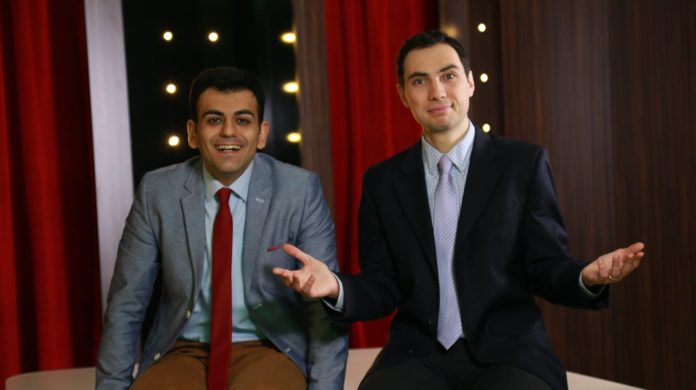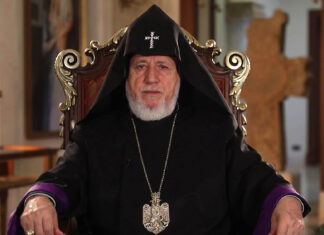The two comedians from Armenia write and perform their own satirical news show, called “ArmComedy,” three times a week on the ArmNews TV channel.
They have had many prominent guests on their show, including Armenian President Serzh Sargsyan, various Armenian ministers and politicians, including opposition figures, filmmakers, singers and even American comedian Conan O’Brien during his 2015 visit to Armenia.
Like many political satirists, their intellectual and fresh approach to news attracts a wider audience than straight political academic analysis. Their straight-faced, suited presentation of the news, has won over many fans.
They both do have academic backgrounds, but these are in ostensibly unrelated fields. Margaryan has a doctorate in English while Sargsyan has one in philology, and both have been lecturers in Armenian universities. Their unusual path to the professional world of comedy was a long one.
After finishing their studies, they used their linguistic skills to find jobs in international development organizations and developed new specialties. For example, Sargsyan worked for various US government-funded development projects in Armenia concerning elections, political party programs, and corruption for seven years.
Margaryan said this line of work taught them a lot about politics, as “we could see a lot of things from the inside — how politics works or doesn’t work. We found a lot of inconsistencies and ironies.” Sargsyan added, “Anti-corruption is an area you don’t study in the university.” During this period, they tried to write some satiric articles, and found that though the reports and serious language prepared by the political organizations in which they worked got little attention, they, in Margaryan’s words, “could bring focus to issues of interest through satire, and it worked.”








